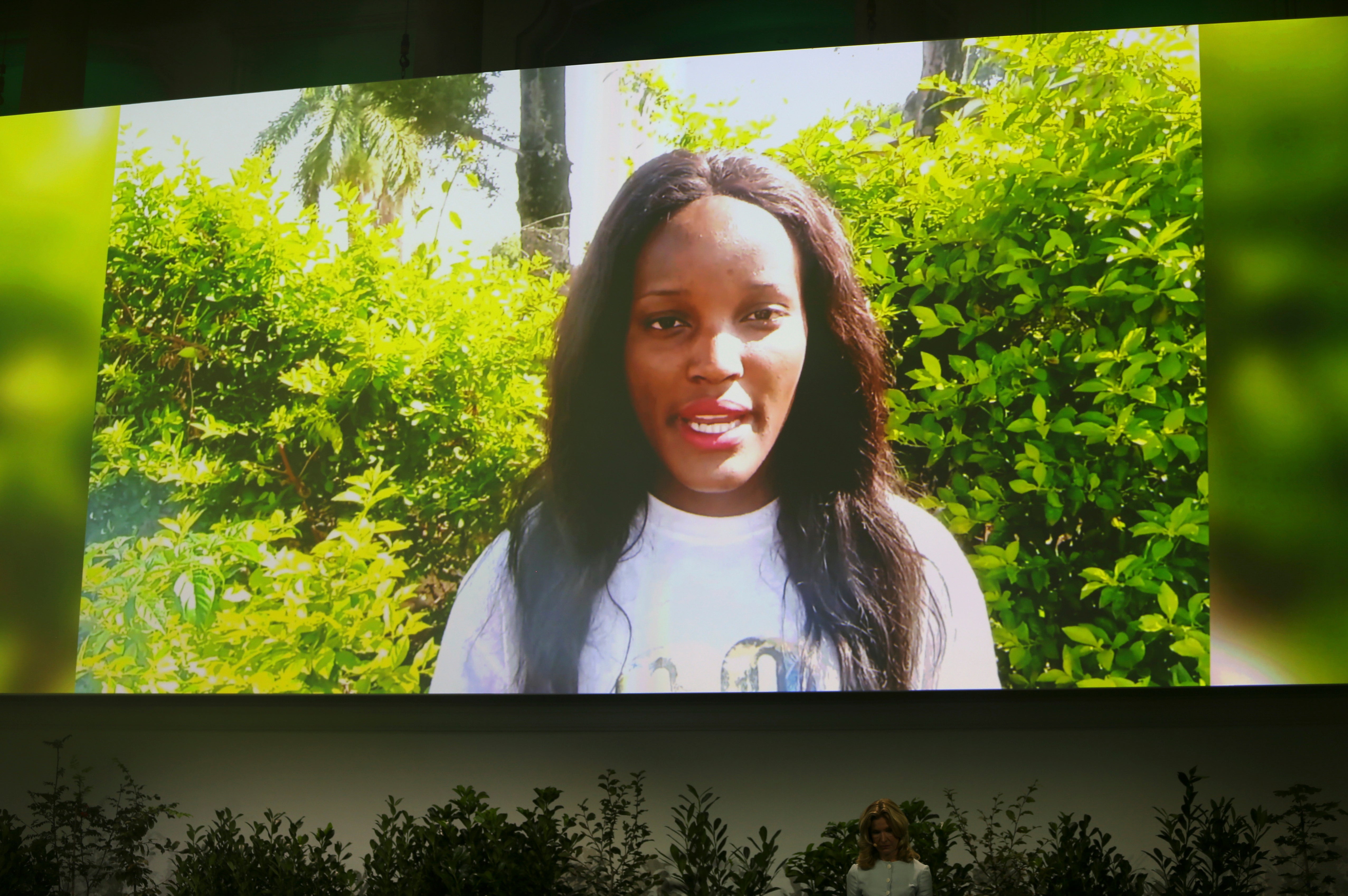'Wake up': Climate activist Nakate challenges world leaders
Ugandan activist Vanessa Nakate has challenged world leaders to “wake up” and recognize climate change as a crisis

Your support helps us to tell the story
From reproductive rights to climate change to Big Tech, The Independent is on the ground when the story is developing. Whether it's investigating the financials of Elon Musk's pro-Trump PAC or producing our latest documentary, 'The A Word', which shines a light on the American women fighting for reproductive rights, we know how important it is to parse out the facts from the messaging.
At such a critical moment in US history, we need reporters on the ground. Your donation allows us to keep sending journalists to speak to both sides of the story.
The Independent is trusted by Americans across the entire political spectrum. And unlike many other quality news outlets, we choose not to lock Americans out of our reporting and analysis with paywalls. We believe quality journalism should be available to everyone, paid for by those who can afford it.
Your support makes all the difference.Ugandan activist Vanessa Nakate challenged world leaders to “wake up” and recognize climate change as a crisis as she tied it to poverty, hunger, disease, conflict and violence against women and girls in a speech broadcast Wednesday as part of the Desmond Tutu International Peace Lecture.
Nakate, who has demonstrated alongside other young activists including Greta Thunberg urged leaders “to see the danger we are in.”
Niclas Kjellström-Matseke, the chairman of the Tutu Legacy Foundation, said in comments introducing the lecture that “our indecisiveness expedites inequality, it enables injustice, it facilitates the destruction of critical biodiversity and it empowers the richest nation on earth to walk out on a global climate agreement and to suspend funding to the World Health Organization during a global pandemic."
He was referring to President Donald Trump's announcement in 2017 that the U.S. would withdraw from the landmark Paris Agreement on climate change, and the decision this year to remove U.S. funding for the WHO in the midst of the coronavirus outbreak, which has killed more than 1 million people worldwide.
Thunberg was due to speak alongside Nakate but withdrew last week without giving a reason. She was replaced by Christiana Figueres, the former executive secretary of the U.N. Framework Convention on Climate Change and a key figure in the 2015 Paris climate accord.
The Tutu peace lecture is given every year to coincide with the South African Nobel Peace Prize winner's birthday. Tutu turned 89 on Wednesday. The pre-recorded speeches, not given in person this year because of the pandemic, called for “climate justice globally.”
“The destruction of the Earth’s environment is the human rights challenge of our time,” said Tutu, the former Anglican archbishop of Cape Town who was awarded the Nobel for his fight against South Africa's racist system of apartheid, which ended in 1994.
The speakers called on the world to reduce the burning of fossil fuels and cut emissions of greenhouse gases that contribute to global warming.
The main goal of the Paris climate accord is to limit the rise in global temperatures to 2 degrees Celsius (3.6 degrees Fahrenheit) above pre-industrial times, but scientists say the world is on track to soar past that.
Nakate's speech focused on the African continent, which contributes the least to climate change but stands to suffer its effects the most.
She said flooding and drought have destroyed crops and caused hunger for millions, while flooding has increased the prevalence of deadly diseases like malaria and cholera, and conflicts can arise when resources are diminished.
“Climate change is a nightmare that affects every sector of our lives," she said. “How can we eradicate poverty without looking at this crisis? How can we achieve zero hunger if climate change is leaving millions of people with nothing to eat? We are going to see disaster after disaster, challenge after challenge, suffering after suffering ... if nothing is done about this."
She called for leaders to “leave their comfort zones and see the danger we are in and do something about it. This is a matter of life and death.”
There were also messages from South African climate activist Ayakha Melithafa and former U.S. Vice President Al Gore, who praised the younger generation's work.
“Although sometimes change can come from the top, more often the biggest changes start at the grassroots level because political leaders start paying attention if the calls for action are loud and persistent and unyielding,” Gore said.
Figueres warned that the world is entering “the decisive decade” for climate and environment, when the quality of life for hundreds of years could be decided.
“That may sound like an exaggeration, but it's not," she said.